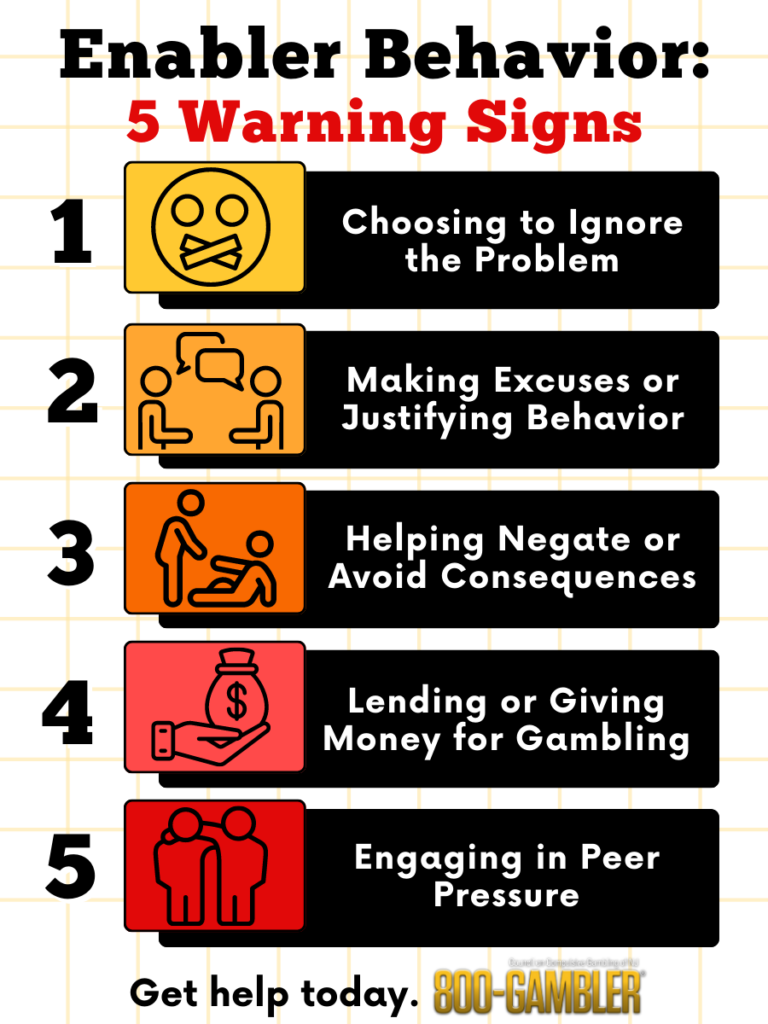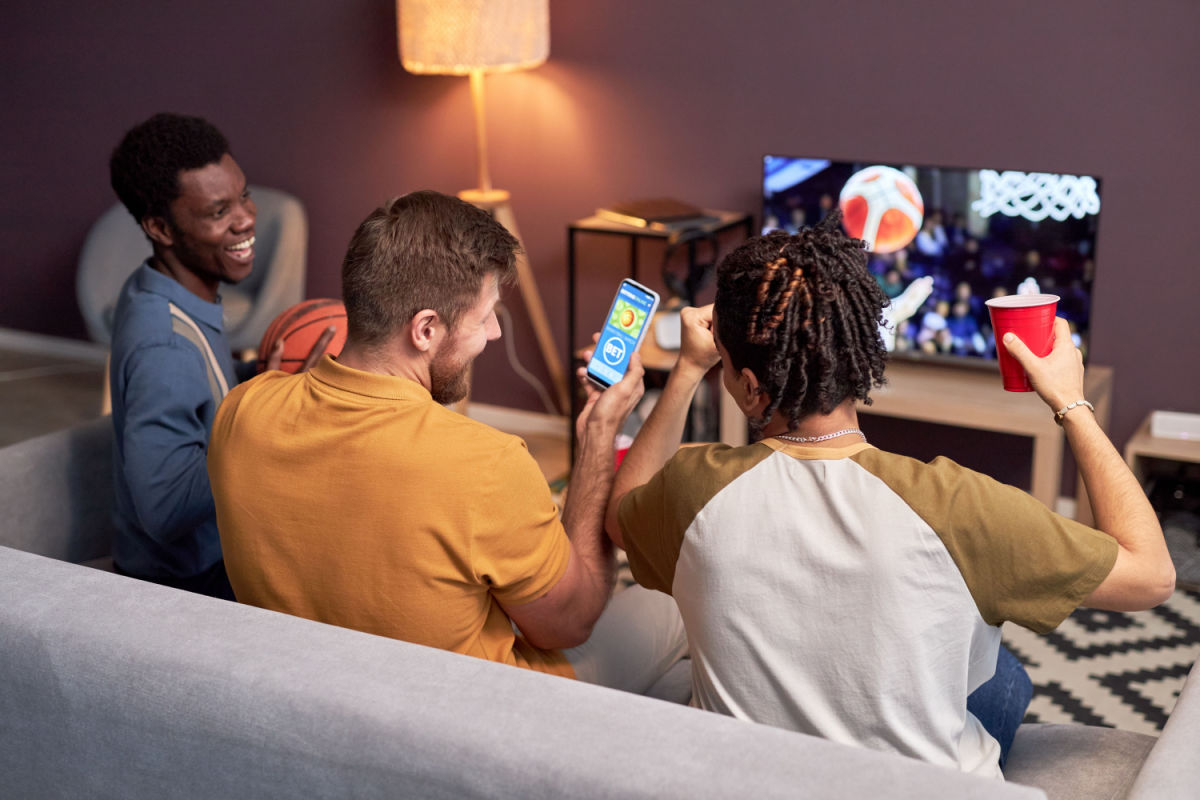When someone is struggling to recover from a gambling problem, it is not uncommon for their family members or close friends to unknowingly engage in enabling behaviors. These actions, while usually well-intentioned, can unintentionally perpetuate the gambling problem and hinder the individual’s recovery.
By understanding the signs of enabling and learning how to recognize enablers, both problem gamblers and their loved ones can work together toward long-term recovery and improved mental health. In this article, we’ll discuss five ways people enable women and men who gamble irresponsibly — and how you can handle enablers if you have a gambling problem yourself.

Purposefully Ignoring the Problem
One of the biggest signs of enabling is purposeful ignorance of the problem. In some cases of drug or alcohol abuse, family members or friends are aware of their loved one’s behavior but choose to turn a blind eye or downplay the severity of the issue. The same holds true for those struggling with a gambling problem. Your loved ones may convince themselves that the problem will resolve on its own or that confronting the issue will only lead to conflict. However, their purposeful ignorance of the problem can inadvertently allow your gambling behavior to continue unchecked, delaying you from seeking the help and treatment that you need.
Excusing Bad Behavior
Enablers often make excuses for problem gambling behavior. They may rationalize or minimize the negative consequences that arise from gambling, such as drained finances, strained relationships, or neglected responsibilities. By excusing the behavior, enablers inadvertently enable you to avoid taking responsibility for your actions. It is crucial to recognize that making excuses only perpetuates the cycle of problem gambling and inhibits progress toward recovery. If a loved one in your life tends to excuse or rationalize your problem gambling, you may need to set firm boundaries around discussing the topic for the foreseeable future.
Helping You Avoid Consequences
Sometimes, enabling irresponsible gambling involves shielding a problem gambler from facing the consequences of their actions. A loved one may help you out of financial trouble, cover up your gambling-related lies, or intervene to prevent you from facing legal or financial repercussions. While these actions may be driven by a desire to protect you, being “bailed out” over and over again ultimately hinders your growth and can enable a continuous cycle of problematic behavior. Allowing you to experience the consequences of your actions can serve as a wake-up call and encourage you to seek help.
Lending or Giving You Money for Gambling
Providing financial support to a problem gambler is a clear sign of enabling. Enablers may lend or give money to a loved one who struggles with problem gambling, often with the intention of helping them overcome short-term financial difficulties or to ease their gambling-related debts. However, this only enables the continuation of the gambling behavior and may lead to increased financial strain for both the problem gambler and their enabler. Stopping enabling behaviors related to finances is essential to breaking the dependency cycle. Many treatment plans at drug and alcohol treatment centers encourage people with substance use disorders to discuss and agree on clear monetary boundaries with their loved ones — a tactic that can easily be adapted for situations related to problem gambling.
Engaging in Peer Pressure
One of the worst enabling behaviors that a problem gambler can face is peer pressure. By engaging in peer pressure, enablers contribute to normalizing and reinforcing problem gambling. Even if their initial thoughts are well-intentioned, your friend or family member should not be accompanying you to the casino, placing bets on your behalf, buying you New Jersey Lottery tickets, or joining in any part of these activities — and they especially shouldn’t be suggesting these types of ideas themselves!
Break Free From Gambling
Even if you don’t feel like any of the above descriptions apply to your loved ones, it’s still important to recognize the signs and signals of enabling so you can avoid falling back into bad habits. By watching out for these dangerous behaviors, you can begin to take control of your life and seek the support you need to overcome your gambling problem.
To get help for a gambling problem now, call 800-GAMBLER. Our toll-free, confidential helpline operates 24/7 and can connect you to local support groups, behavioral health professionals, Gamblers Anonymous meetings, and much more. Take back your life and break free today — we’re waiting to hear from you!



